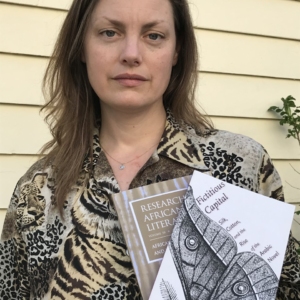Elizabeth Holt
- Fellowship Dates 2012-2012
- Research Topic The Impact of the Silk and Cotton Industries in Egypt and Syria on the Rise of the Arabic Novel, 1914-70
- Fellow or Grant Type National Endowment for the Humanities
- Affiliation Post-doctoral candidate Bard College
In the last decades of the 19th century, Alexandria, Beirut and Cairo emerged as the literary, cultural and publishing centers of what many intellectuals and scholars have deemed the Nahdah, or Arabic literary and cultural rebirth. This book manuscript challenges conventional literary histories of this period by reading deeply and broadly into the neglected archive of serialized Arabic novels published in the periodicals emanating first out of Beirut from the 1870s to the 1880s, and later from the 1880s and 1890s, from Alexandria and Cairo. Writers, readers and editors used serialization and suspense to participate in and negotiate a changing economic, intellectual and gendered environment. This research considers how several anterior generations of long, narrative prose in Arabic have been largely overlooked or disdained by everyone from contemporaneous Egyptian audiences to recent critics. It examines the early period, when the Arabic novel was serialized in journals that also took up such mundane topics as fashion and home economics, discounting the serialized novel as sheer commercialist entertainment. The neglect is particularly puzzling as these years were the heyday of the Arabic cultural and literary Nahdah, translated as “renaissance” or “rebirth,” and referring to a whole range of modernizing projects enabled by the proliferation of the printing press and changing understandings of gender, geography and economy in the latter half of the 19th century and into the 20th. This study negotiates contemporary economic and cultural issues of late 19th century Beirut and Cairo as questions compelling narrative subject matter in a long tradition of complex, suspenseful story telling. This research makes a significant contribution to the fields of Arabic literature and intellectual history, comparative and world literature and gender studies and enables educators and scholars working in English to access these pivotal early years of modern Arabic literature in their research as well as in the classroom.
